At Inn from the Cold, we are dedicated to providing shelter, support, and resources to families experiencing homelessness. We recognize that over half of the families that reach out to Inn from the Cold are Indigenous. It is our goal to offer our services to families from an Indigenous lens that encompasses an Indigenous worldview and ways of knowing. Through our programs, we support families to establish cultural connections, foster healing and connect them with programs and resources relevant to each family’s needs. By understanding the significance of culture and ceremony in healing, along with the 12 dimensions of Indigenous Homelessness, Inn from the Cold can create a more inclusive and healing environment for Indigenous families accessing our programs.
Here is what we understand about the impact of culture and ceremony, and aspects of the 12 dimensions of Indigenous homelessness (Source: J.A Thistle: The 12 dimensions of Indigenous Homelessness), as it relates to healing for Indigenous families:
- Holistic Healing: Healing for Indigenous families encompasses more than just finding stable housing. It involves addressing the deep-rooted historical trauma and the disconnection from cultural practices imposed by colonization that have affected generations. Spiritual Disconnection homelessness is one of the 12 dimensions of Indigenous Homelessness. By supporting Indigenous families to reconnect to their culture, we acknowledge and recognize that housing stability is not limited to the provision of a housing structure or building, rather it involves much more than this for Indigenous Peoples.
- Strengthening Cultural Identity: Cultural Disintegration and Loss Homelessness occurs when a family is totally dislocated or alienated from their culture and from the relationship of Indigenous society known as “all my relations” or “Wahkohtowin” (wah-koh-tdah-win). Reconnecting families to culture and community works toward alleviating this dimension of homelessness for Indigenous Families. By supporting Indigenous families on their cultural reclamation journey, we can foster an environment where families can feel safe and affirmed in following their traditional teachings and practices. Through this connection and validation of cultural identity self-esteem, family cohesion and overall well-being can be positively impacted.
- Supporting continued Resilience and Empowerment: Surviving the onslaught of colonization throughout history and maintaining the ability to continue moving forward shows the resilience and empowerment already present within Indigenous Peoples. By encouraging and supporting Indigenous families’ reclamation to cultural practices, knowledge and traditions, a strengthening of empowerment and catalyst for continued social change can take place. Family members then become agents of change within their respective communities. We can help support by sharing knowledge of necessary resources, education and opportunities to facilitate continued resilience and empowerment for the Indigenous family’s that we serve.
- Cultural Competence and Sensitivity: Through active engagement in learning opportunities regarding understanding Indigenous history and culture, we can demonstrate a commitment to cultural competence and sensitivity. This involves educating ourselves on how to recognize and respect the unique needs, values and traditions of Indigenous families. Learning how to integrate Indigenous ways of knowing and being into our programs and services, we create an environment of respect and understanding that can foster trust and enable the provision of effective support for our Indigenous families.
- Strengthening Community Connections: By supporting Indigenous families in their reconnection to culture we can help families build stronger community connections and relationships and create a stronger sense of community belonging. We work with families to navigate the complex systems and provide meaningful opportunities to develop relationships with Indigenous organizations, Elders and practitioners ensuring that each family has access to a reliable network of support, they can depend on well beyond their time with Inn from the Cold.
Connecting to culture, ceremony and tribal identity is a transformative journey that holds profound importance for Indigenous Peoples on their path toward healing. By re-engaging in ancestral traditional cultural practices and knowledge sharing and gaining the courage to reclaim tribal identity, individuals and communities can continue strengthening resilience, dignity and well-being. Supporting this resurgence with Indigenous families can help them to continue to overcome intergenerational trauma caused by colonial practices aimed at destroying Indigenous Peoples, and foster a brighter, more empowered future. As Canada continues its path toward reconciliation, it is crucial to support and amplify Indigenous voices and healing through support and celebration of the diversity of Indigenous identities and cultural practices.
Inn From the Cold‘s support of Indigenous families in their reconnection to cultural identity is essential in correcting the colonial impact of historic displacement, spiritual disconnection, and cultural disintegration and loss homelessness Indigenous families have experienced. By recognizing, and understanding, the impacts of historical displacement, separation from Indigenous worldviews or connection to the Creator, and dislocation and alienation from “Wahkohtowin” (wah-koh-tdah-win), we can support the empowerment and well-being of Indigenous families accessing our programs. Through this understanding, we strive to set an example for organizations seeking to create inclusive and supportive spaces for Indigenous Peoples. This understanding also expands to non-Indigenous families and supports the Indigenous worldview that we are all related.




















